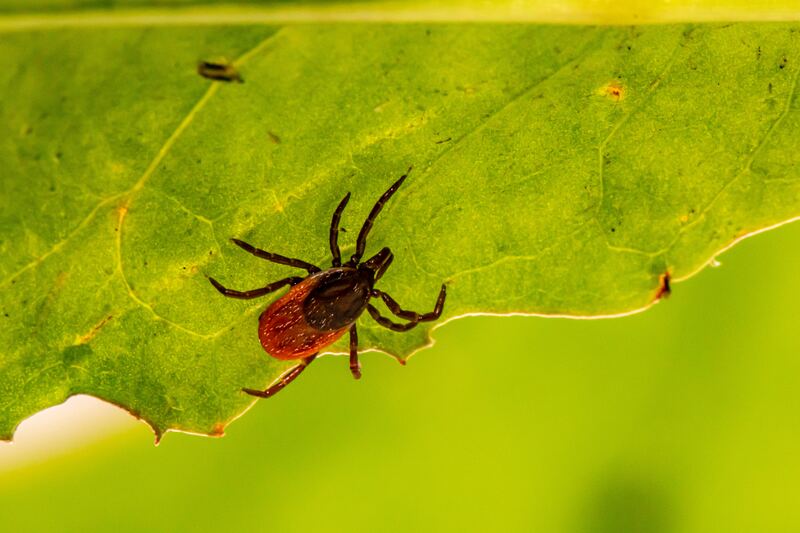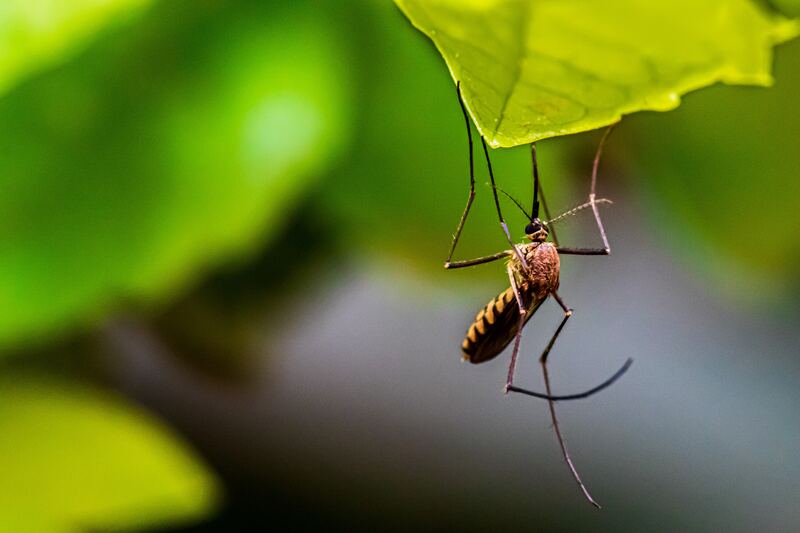We need your consent to the use of individual data so that you can show information about your interests, among other things. Click "OK" to give your consent.
Summer parasites in the dog
Parasites in summer
The ticks attack in full. They almost seem to jump out of the grass when you're out for a walk, and despite good antiparasitics, you often brush flocks of black dots off your dogs when you get home. Are you thinking about choosing another product? And what about the other parasites that lie in wait for your dog in the summer?

Ticks lead
Of course ticks are the number one topic. They lie in wait in the grass for a warm-blooded animal to pass by, to drink blood and transmit terrible diseases to humans and dogs. Only after drinking is the female able to lay up to 4000 eggs. They hatch into larvae that also suck on warm-blooded animals, but they are so small that you usually don't notice them. Next come the nymphs, which also suck the blood of larger mammals. They then turn into adult ticks. This entire process takes up to 3 years.
In our country, the common tick is most abundant. It loves humid and warm weather and can climb up to 1 meter. It will definitely not fall on your head from a tree. It is said that it does not feel well in a very short mowed lawn. They are really only sporadically found in it, because they don't have a chance to attach themselves so low to a larger mammal. And if you feel that ticks only transmit diseases and are not useful, then it should be added that, for example, chickens feed on them.

Spotted ticks
On the subject of ticks, there is another thing to mention drinker. You may have already found it on your partner. It looks pretty much the same as the others, but it's significantly larger and you can make out the fine, black speckling on its bottom. It is becoming more and more widespread in the Czech Republic and transmits the dreaded babeziosis – a small parasite that attacks red blood cells and manifests itself in weakness, fever or vomiting in the dog, usually accompanied by a dark can. In most cases, the infection ends with the death of the dog (if you do not visit a veterinarian immediately).
Mosquitoes
Maybe only when you're about to go on vacation abroad with your dog, you will come across the topic of mosquitoes and how to protect yourself from them. Here, mosquitoes also sometimes suck the blood of dogs, but this is not a serious problem. Abroad, mosquitoes can carry the dreaded heartworms, which can even cost your partner their life. That's why it's a good idea to discuss suitable antiparasitics with a veterinarian before going abroad, to administer them on time even after your return, and to equip yourself with a good repellent.

Kloshes and repellent
Deer closhes are a nuisance pest, which is hardly talked about. That's because few people know the name of this tiny animal. At the same time, almost everyone has already seen "a tick-like, flying, annoying insect". It really looks like a tick with wings. But they fall off after being sucked on. And it stings really likes and very unpleasantly. Most dogs bite furiously, often to the point of blood. The cloche itch itches a lot and for a long time. And some dogs even have allergic reactions to it. But it is difficult to defend against him. Most repellent manufacturers do not think about cloches or do not work on them. Or the owner doesn't use repellents on the furry ones at all when they are about to go into the forest. All you have to do is buy a really good repellent and use it really often.
Octomilks are bad for the eyes
Few people have heard of the connection with eye disease, while every other person has apple cider vinegar at home. A special type of fruit lover, which you meet most often in the forest and feeds on tears, can transmit dangerous parasites. They are tiny nematodes thelasia that live under the third eyelid and cause conjunctivitis, itching, discharge from the eye, irritation of the cornea. If your pet has eye problems, visit a veterinarian immediately, who may remove the parasite mechanically. Thelasia can equally spread to all dogs in the household, to cats and people.

Lice and others
Around the muzzle and ears you can sometimes you can also find lice or mange mites (these are often transmitted by stray cats), which cause itching, mainly around and inside the ears. In late summer, autumn velvets also appear, looking like tiny orange dots. All these parasites cause severe itching or even skin disease. If you discover any of these parasites on your four-legged companion, don't hesitate to seek veterinary advice before it's too late. It's quite possible that the antiparasitic you choose will work for ticks and fleas all season, but that's not all. Think about quality repellents for dogs.


 Cookie - Settings
Cookie - Settings
